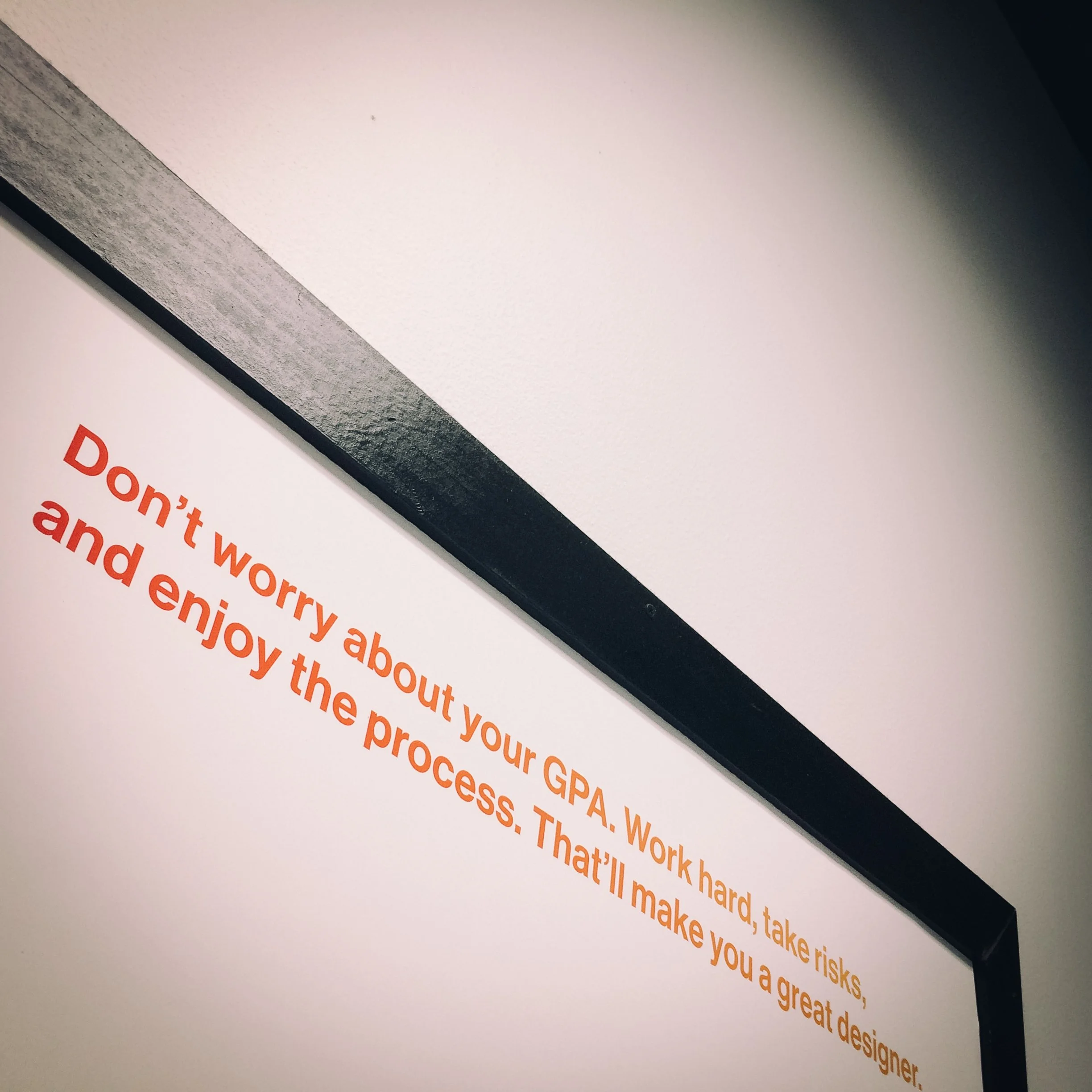Don’t Be That Teacher: Extra Credit Doesn’t Exist…
I posted the following on my facebook page in 2018. I believe it is just as relevant now as it was then… if not more.
Conversation I am having with my students tomorrow:
Imagine that every day you come to class prepared and deliver at least 95% on everything assigned to you.
Before you do all of your assignments, you spend hours researching the topic so you know it front and back and can answer any question about it. So you know enough to make a 95% on the assignment.
Then you come up with the plan to learn all of the lessons needed to make your 95%. You map out every hour of every day so you know how to learn enough to get a 95% on every assignment.
After you complete each assignment, you work for hours on how to improve on the 95%. You do more research, you replan, you do the assignment again just to hope to get a 96%...
Then as you enter the last 3 weeks of school and you have given all you have, the teacher looks at you and says.... you need to give me more, your 95% is not enough for you to successfully complete the course.
—
That is extra credit. That is how a teacher feels when you have the nerve to email, call, or ask for extra credit. Especially when opportunities to improve grades have been given EVERY DAY through additional time offered outside of class time for tutoring or time to work on a project or email with questions... or in my case an email every Sunday for 12 weeks offering a list of opportunities.
—
(By the way, I only used giving 95% because No one is perfect... but teachers are very close!)
As the teacher that I hope you are, you have poured everything into trying to get everything right and tried to improve every day. You have worked through plans, created engaging assignments, and pushed yourself and your students to be the best possible. Only to be told that you didn’t do enough for that student to reach their goal, no matter if that goal is to pass or for an A. It’s all your fault because your 95% effort wasn’t enough to get them over the 45% effort.
You know the routine… On day one, every student that you have in the classroom is turning over a new leaf and they have learned from their mistakes and are going to get everything done well and early. By day 45, they are barely holding on to a passing grade or their goal. Day 60 they have sunk to the point of no return. On day 75, their impending doom hits them and they start to panic. The next 15 days of class are filled with frustrated huffs, snappy responses any time you talk with them, an email from a suddenly concerned parent, and of course the begging…
I’m no longer in the classroom but I am in classrooms every day and talk with a variety of teachers every day if not hourly some days and one thing remains true - students and parents only care about grades three times each semester: The first day, the last day, and too late.
I always tried to be very open about my grading. I used rubrics for everything and those rubrics were often so specific that they took hours to build and work out the scoring on. I knew this wasn’t something that students could expect in the “real world” but I also knew that it would prevent me from having to go to meetings to justify how students were scored when it came to the end of the semester and students and parents were scrambling for points like toilet paper in 2020. I would have most of the scoring be objective (deadline, time, framing, editing, story structure, script, etc) but I would have subjective categories as well. Those categories (professionalism, overall message, overall presentation) were solely at my discretion and would honestly have very little impact on the final score of the project.
There were times where a student or parent would challenge my scoring and when we met, I would always bring the rubric for the parent/student and ask them to score the project based on the criterion laid out in the rubric. I never had a parent or student come up with a score higher than I had given the student. My favorite story in that vein was a student who challenged her final project (ALWAYS HAVE YOUR FINAL PROJECTS DUE BEFORE THE FINALS DATES!). She didn’t start with me, she went straight to the administration. The admin called and asked for a copy of the rubric. I emailed it to her and she asked the student to score the project. The student’s scoring of the rubric was 15 points lower than mine. The administrator called, while the student was in the office with her, and asked me to change the grade in the system to the student’s scoring. The student could not believe it. The admin asked the student if they had access to the rubric during the work window - they did. The admin the asked why they didn’t score it as they went so they could meet the goal they set for themself. The student admitted that they never looked at the rubric and said “I just thought since it was a big grade that if I turned it in he would give me the grade I needed.”
Unfortunately, that attitude is not something that student just came up with. That attitude is a result of teachers giving that student a pass anytime they complained. This student was also notorious for asking for extra credit at the end of the semester… and being granted those extra points for menial tasks that do nothing to improve that student’s abilities, skills, or work ethic.
I implore you that as we close the end of the semester, you don’t fall into that trap. Not having to end your semester with a bank of phone calls/emails to parents explaining why their student has failed your class is not how any one wants to head into the holiday break but I assure you that avoiding those conversations now, just puts them off until the start of summer. End the cycle now…
If you find that you have this conversation with students/parents every semester, stop it now. Talk with your administration about your syllabus. If you are teaching students both semesters, ask if you can add an addendum about late work and extra credit. If you teach new students in January, insert something about late work and extra credit into your syllabus for this semester.
My syllabus often felt like tax code to students because I tried to cover myself in as many ways as possible to avoid meetings. Here is the section about grades, late work, and extra credit that I put in my syllabi:
(This was for my sports broadcast students. They were advanced students who professed that they wanted to produce sports content at the next level in their career so the workload was heavy but clearly spelled out at the beginning of the semester.)
Project Work Time:
Projects may only be worked on during the class period, after school in Mr. White’s Classroom, or at home using your own software. (Mr. White is NOT responsible for work that is performed at home on other programs that may not be compatible with the classroom computers/programs). Sports Broadcast Institute students will not be allowed to work on assignments during other class periods throughout the day.You may not work on projects during other class periods or during lunch periods in Mr. White’s room. This is a safety and security measure and prevents students trying to access the same computers at the same times and it also allows for interruption free work period for all students.
Attendance & Make Up/Late Work:
In the sports and broadcast production industry, late or absent are not options - the same applies in the Sports Broadcast Institute at RCA.
Make-up of any assignments are the responsibility of the student.
Make up work must be completed outside of class time—either before or after school— within 2 weeks of the absence.
Attendance is essential to your success.
Late is defined as any time after the due date and time. There are no shades or degrees of late.
Late work is accepted and will be scored based on the following scale:
1 minute to 1 day late - 15 Points deducted off final grade for assignment
1 - 2 days late - 20 Points deducted off final grade for assignment
2-3 days late - 30 Points deducted off final grade for assignment
3-4 days late - 40 Points deducted off final grade for assignment
4-5 days late - 50 Points deducted off final grade for assignment
No work is accepted after 5 days late.
There are going to be times of illness, etc that may change the timetable for work submission but these arrangements are to be set up by the student with the teacher and are still held to the same grading schedule.
There will also be times where there is no opportunity for late work submissions, primarily the end of semesters. I am held to several deadlines for grade submissions and there are no exceptions to the due date for semester final projects.
You will receive the following grades throughout the semester:
Syllabus
Progressive grade for a completed and signed syllabus
Weekly Reports
20 Progressive Grades for Weekly Reports
Semester Projects
2 Newscasts
2 progressive grades for the script
2 progressive grades for the video production elements
2 summative grades for the final newscast
2 5-7 minute features
2 progressive grades for the script
2 progressive grades for production value
2 summative grades for the final video
4 Commercials
4 progressive script grades
4 progressive production value grades
4 summative grades for the final commercial
5 Live Broadcasts
5 progressive production plan grades
5 progressive performance grades
5 summative grades for the final broadcast
Capstone
1 progressive grade for the capstone proposal
1 progressive grade for the capstone mentor request letter
1 progressive grade for the capstone project script
1 progressive grade for the capstone mentor contract
1 progressive grade for the capstone production plan
1 progressive grade for the capstone reflection paper
1 summative grade for the capstone project preproduction (1st semester)
1 summative grade for the capstone project final project (2nd semester)
1 summative capstone comprehensive grade (average of all above grades)
Final Exams
Each semester there will be a final exam which will consist of questions covering
AP style, Production techniques, and other topics.
Provision for Improving Grades:
Opportunities designed to allow you to recover from a low or failing cumulative grade will be allowed after all work required to date has been completed, and you have demonstrated a legitimate effort to meet all course requirements including attendance. You should contact Mr. White concerning recovery opportunities. Mr. White can be expected to establish a reasonable time period for recovery work to be completed during the semester. All recovery work will be directly related to course objectives and must be completed ten school days prior to the end of the semester. These provisions will come in the form of additional assignments to be completed outside of class time, performance of course related work at live event productions, and other options that may arise and be discussed.
As you can see, this is VERY specific. I laid it all out on the table on day one. Each semester, I had students ask for extra credit. I NEVER buckled for several reasons; not the least of which was that I would send an email to every student and parent in my program each week with our live broadcast schedule and offer up to 5 points on an assignment for every broadcast the student worked… not one student in 4 years took me up on it.
As you close out your semester, remember the work that you have put into your students in the last 4 months and remember the opportunities you gave them to do everything they needed to do to meet your goals for them as well as their goals. I have to admit that once I figured out the syllabus-grades-no extra credit-communication game, my holidays were always a lot better because I wasn’t stressed about what shoe was going to drop when I got back. I hope you can feel that same peace this year.
Meet the Author, Tom White
"Tom White is the Education and House of Worship Specialist at Amitrace. Tom's role is to help educators build better programs through better training, planning, and equipment. Before joining Amitrace, Tom was the Broadcast Engineer at Grady College of Journalism and Communication at the University of Georgia. Prior to that role, Tom taught at Morgan County High School and Rockdale Career Academy where he and his student produced thousands of live streams for sports, news, and community events. Tom’s program at the Rockdale Career Academy received the NFHS Network Program Of The Year in 2016 and his program at Morgan County High School received the New Program of the Year title in 2018. Tom has been a long time contributor to many publications and is the host of Teaching to The Test Pattern Podcast. "











As summer winds down, the familiar rhythm of a new school year approaches. For educators like James Peach, the weeks leading up to students' return aren't just about shuffling papers; they're a strategic dance of preparation, aiming to ignite inspiration and cultivate self-sufficiency.